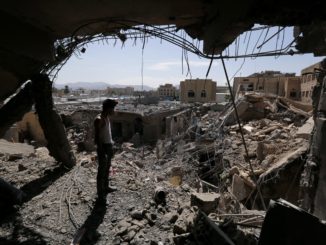
The Long, Brutal U.S. War on Children in the Middle East
Why the movements that pressured the U.S. Senate to reject current U.S. foreign policy regarding Saudi Arabia and its war on Yemen must continue to raise their voices

Why the movements that pressured the U.S. Senate to reject current U.S. foreign policy regarding Saudi Arabia and its war on Yemen must continue to raise their voices
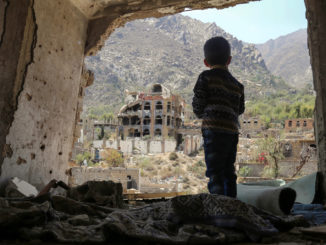
On August 9, a U.S.-supported Saudi airstrike bombed a bus carrying schoolchildren in Sa’ada, a city in northern Yemen. The attack killed at least forty-three people. “This conflict is backed by the U.S. and the U.K.,” journalist Nima Elbagir said. “They are in full support of the Saudi-led activities in Yemen today.”
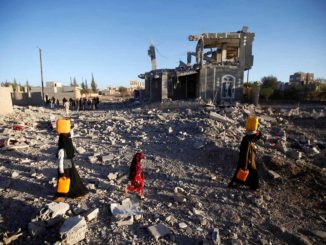
A new Amnesty International report documents the plight of dozens of families in southern Yemen whose loved ones have been tortured, killed, or forcibly disappeared by Yemeni security forces reporting to the United Arab Emirates (UAE). The UAE is part of the Saudi-led coalition that, with vital US support, has been bombarding and blockading famine and disease-ravaged Yemen for three brutal years. The disappearances, and torture, can sadly be laid at the doorstep of the United States.
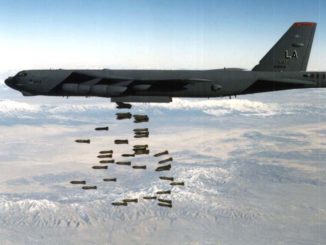
On average, during Trump’s first year in office, the Pentagon dropped 121 bombs per day on Afghanistan. The total number of weapons – missiles, bombs - deployed in Afghanistan by manned and remotely piloted aircraft through May this year is estimated at 2,339.
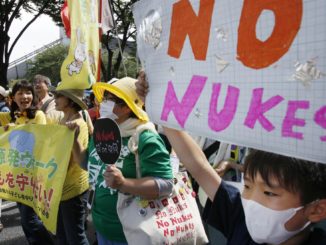
In the state of Georgia’s Glynn County Detention Center, four activists await trial stemming from their nonviolent action, on April 4, 2018, at the Naval Submarine Base, Kings Bay. In all, seven Catholic plowshares activists acted that day, aiming to make real the prophet Isaiah’s command to “beat swords into plowshares.” The Kings Bay is home port to six nuclear armed Trident ballistic missile submarines with the combined explosive power of over 9,000 Hiroshima bombs.
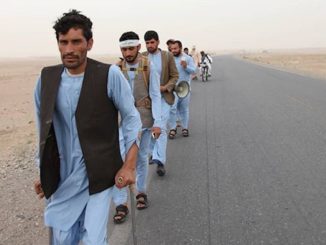
This past Friday in Afghanistan’s Ghazni province, Hazara girls joined young Pashto boys to sing Afghanistan’s national anthem as a welcome to Pashto men walking 400 miles from Helmand to Kabul. The walkers are calling on warring parties in Afghanistan to end the war. It seems likely that ordinary Afghans, no matter their tribal lineages, share a profound desire to end forty years of war. The 17-year U.S. war in Afghanistan exceeds the lifetimes of the youngsters in Ghazni who greeted the peace walkers.
Copyright Toward Freedom 2019